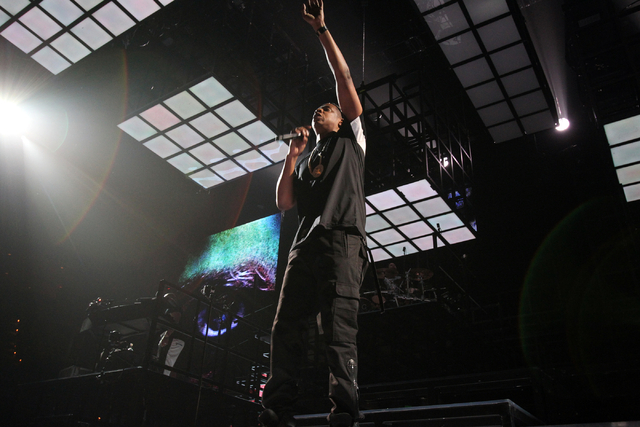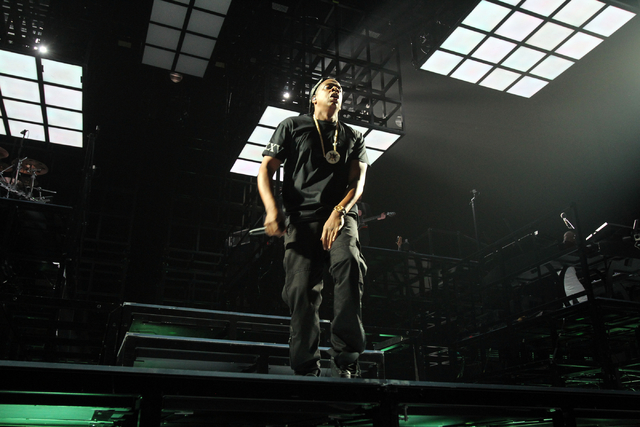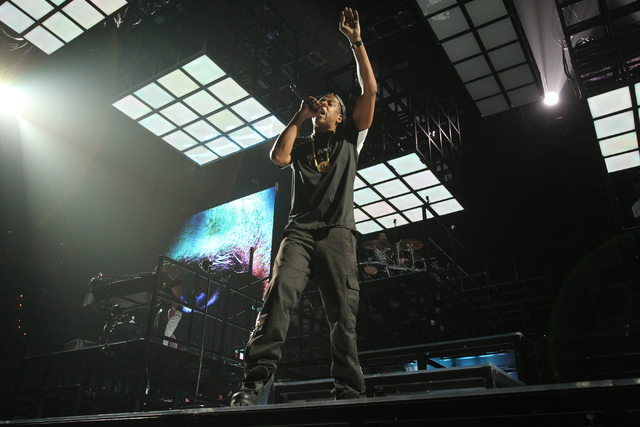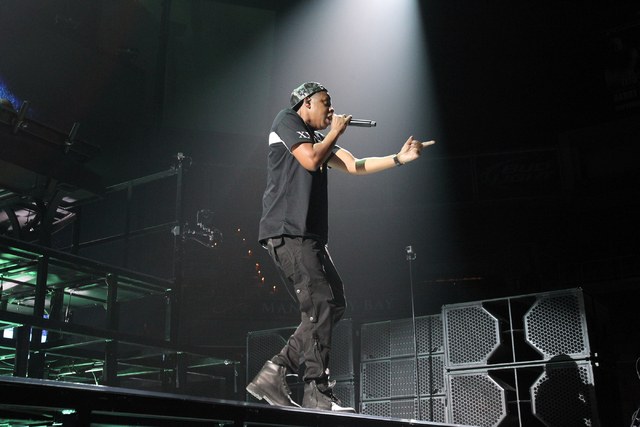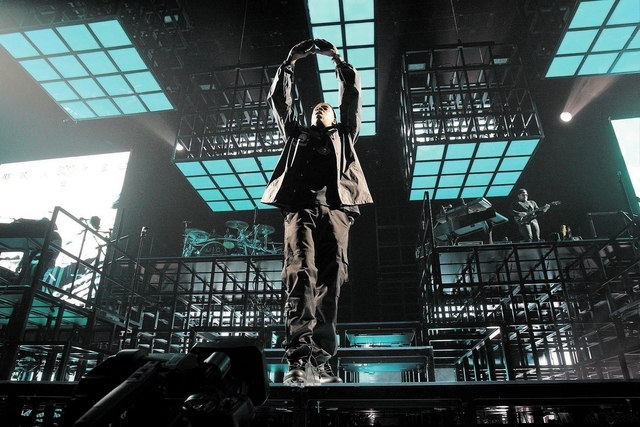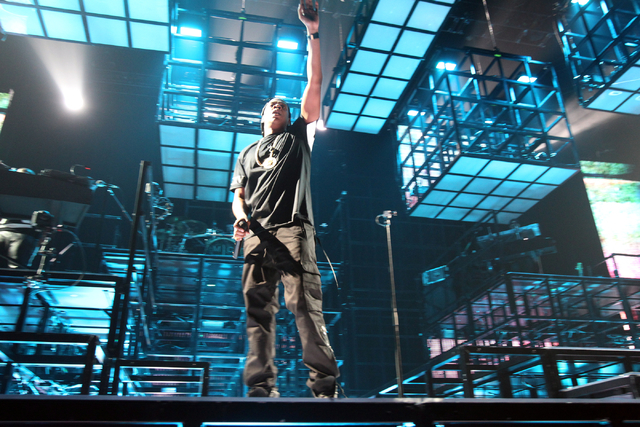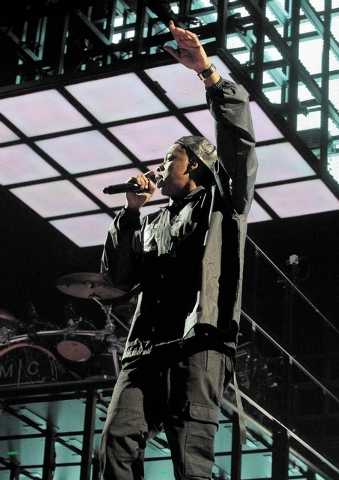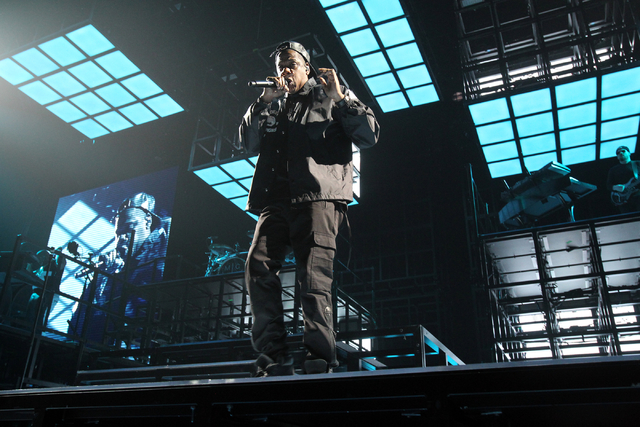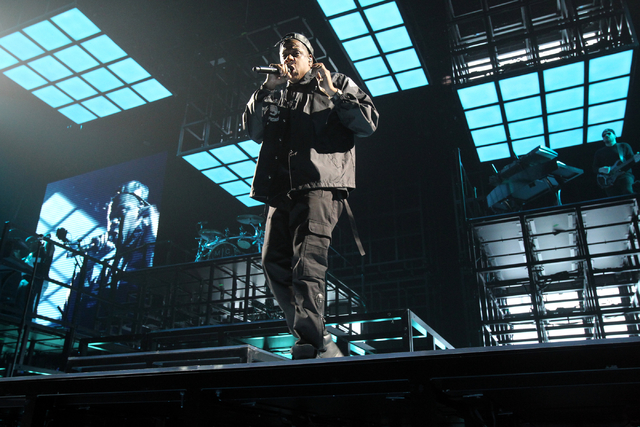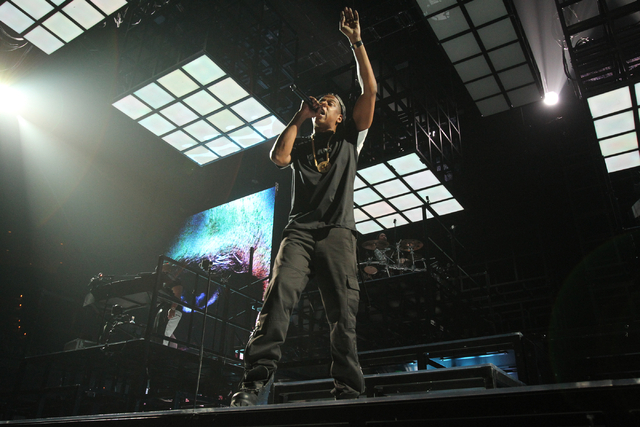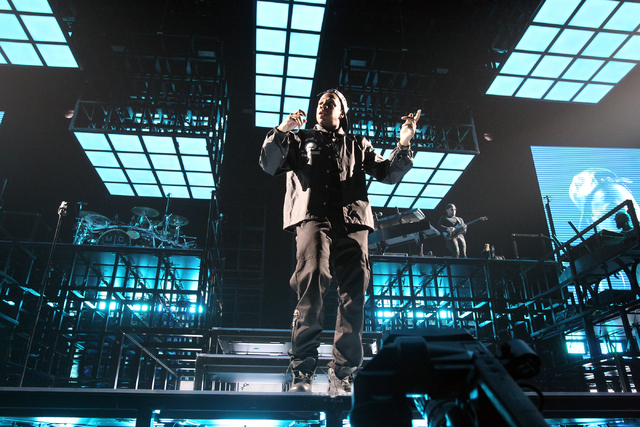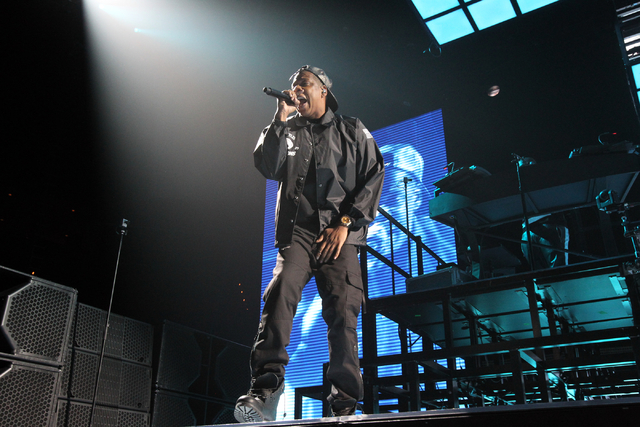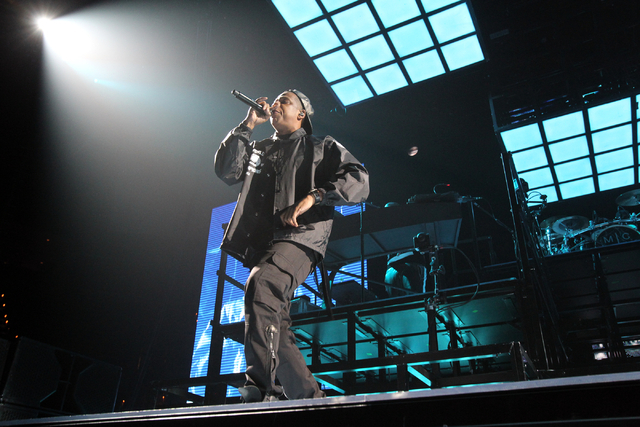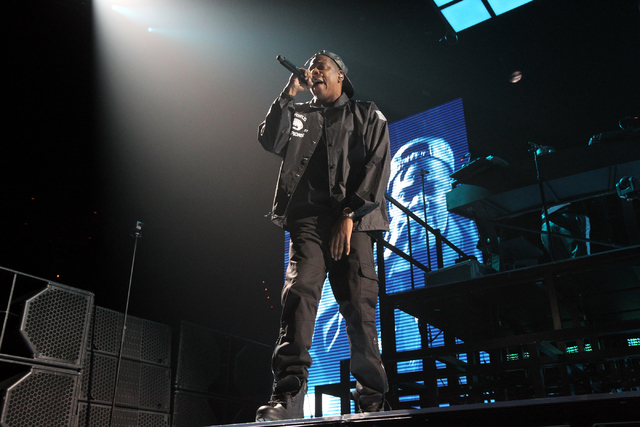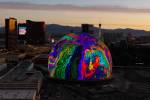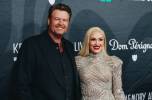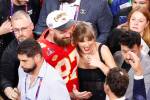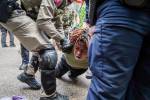Jay Z still dreaming big
It was the kind of directive that could chill an usher’s blood quicker than the December winds whipping outside the arena.
“Security, stand down,” Jay Z told the thick-shouldered, tree-trunk-stout dudes watching over the crowd.
“Everybody get in the aisles,” he then instructed the ever-willing audience at the Mandalay Bay Events Center on Friday. “I need a little disorder.”
Soon, the venue’s passageways ceased to be passageways at all, clogged with bodies forming an eager, undulating gridlock of flesh.
“I like that much better,” the rapper beamed, admiring the chaos that came and went as quickly as his rhymes.
Shortly thereafter, most everyone was back in their seats — or at least in the vicinity of them.
But the moment underscored the manner in which Jay Z goes about his business.
He’s not a revolutionary, musically or otherwise.
He doesn’t champion radical change or any grand gestures, really — nor does he embody them physically, his loose, easy gait as relaxed as a cat sunning itself.
Instead, Jay Z works from the inside out, infiltrating slyly rather than taking by force brazenly, be it corporate boardrooms, high society or crowded music halls.
He tweaks the established order of things, like he did for a few minutes at the Mandalay Bay Events Center, but only after first achieving success within said order.
In other words, he plays by the rules long enough to win the game, then revises the game, refashioning it in his image.
Early on in his career, his music often addressed issues of class conflict and questioned the wisdom of defining success by conspicuous consumption.
“The streets school us to spend our money foolish,” he noted on a few a capella bars of “Can I Live” from his first album, 1996’s “Reasonable Doubt.”
“I could blame my environment, but there ain’t no reason why I be buyin’ expensive chains,” he added later on “Public Service Announcement,” echoing the sentiment during a moment of grand hip-hop triumphalism, with samples of ringing horns and an American flag blowing in the breeze on the large video screens that bookended the stage.
Nowadays, it’s not class conflict but a conflict over his current class that informs a good portion of Jay Z’s latest record, “Magna Carta Holy Grail.”
“New money, they looking down on me / Blue bloods they trying to clown on me,” he rhymed on “Somewhere in America,” addressing a perceived lack of acceptance from polite society.
The album name checks the wares of high-end fashion designers like Riccardo Tisci and Tom Ford and suggests that Jay Z has all but taken up residency at the Louvre.
On “Picasso Baby,” he may have become the first MC to ever reference Jeff Koons’ balloon art.
This from a man who, on his breakout hit “Hard Knock Life,” recalled sleeping on futons and cots on his long, winding road to stardom.
Jay Z performed that fan favorite during his encore on Friday, flashing a smile that gleamed as brightly as the thick gold chain draped around his neck.
That smile, warm and omnipresent, is no small part of his success: the things he speaks of in song, the highest of the high life, is something that few, if any, of his fans will ever experience and thus, virtually impossible to relate to personally.
But that grin belies any standoffishness: it invites you to party even if you can’t afford the drinks.
The ease with which Jay Z carries himself also manifests in his off-hand mastery of the form of hip-hop itself.
He’s the kind of guy who can rhyme “slalom” with “bottom” convincingly, equally at home ambling around the beat or out-racing it with a wind sprint of words.
On this tour, he was backed by a four-piece band, which included super-producer Timbaland as DJ/keyboardist/beat boxer/musical director/cheerleader, all of whom performed nestled amid a series of black risers that looked like designer scaffolding.
Together, they punched up hit after hit that defined hip-hop for the better part of a decade, beginning in the late ’90s.
“I got a million of these,” Jay Z boasted as the band tore into the falsetto funk of “I Just Wanna Love U (Give It to Me).”
The show ended on a more wistful note, with “Young Forever,” which was prefaced by a tribute to Nelson Mandela, during which Jay Z urged the crowd to dream big.
Then he launched into the song, dreams realized.
Contact reporter Jason Bracelin at jbracelin@reviewjournal.com or 702-383-0476. Follow @JasonBracelin on Twitter.



